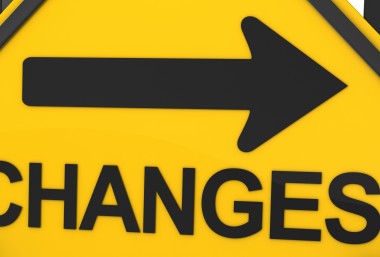An emerging economy
Despite being one of the poorest ASEAN nations, Myanmar is establishing itself as an emerging economy, with a GDP of US$64.8 billion in 2015.
One factor driving the economy is the growth of foreign investment. With the cost of Chinese labour increasing, more and more foreign companies are looking to move production out of China or build new factories in Southeast Asia to supplement their Chinese operations. Myanmar is an attractive lower cost option and it is already seeing an increase in manufacturing, particularly of footwear, apparel and electronic products.
An example of this growth is the opening of the first large-scale industrial park in Myanmar in September 2015. Around 47 companies from Japan, the United States, China, and 10 other countries are operating there. One of those companies is Japan’s Koyo Radiator. Koyo produces 1.4 million radiators annually. Like most companies at the industrial park, Koyo assembles the radiators at the park using imported parts. The radiators are then shipped abroad.
Keen to assure foreign investors that their brands will be protected in line with international standards, the Myanmar government is introducing intellectual property laws next year.
The current trade mark regime
Myanmar’s steps towards establishing a concrete system for the protection and enforcement of rights like trade marks are significant considering there is currently no IP legislation.
In the absence of any statutory rights, there is no formal system of registration for IP rights. At present, foreign companies doing business in Myanmar have to rely on common law rights. In terms of trade marks, the only option available to brand owners is to file a 'Declaration of Ownership' with the Deeds Registration Office. Once the Declaration is ‘registered’, a Cautionary Notice is published in one of the daily newspapers to make people aware of the owner’s rights. If an owner wants to enforce their rights, the Declaration of Ownership and Cautionary Notice are the primary forms of evidence used to establish use of the mark in Myanmar.
The proposed laws
The new laws will make it possible to obtain a trade mark registration. The key features of the new laws are:
First to file rule - it will be the first person to file a trade mark application who will have rights to the mark, irrespective of use. This rule follows the lead of other ASEAN countries like China and South Korea.
Types of marks - the definition of ‘trade mark’ will include sounds, smells, and touch, as well as traditional marks like words, devices, labels, and numbers etc. This definition is broader than many countries which still don’t accept smells or touches as a trade mark. Collective and certification marks will also be allowed.
Registration process - domestic and foreign trade mark owners can file an application. Local agents must be used to file on behalf of foreign owners. The application can be filed in English or Burmese and needs to be accompanied by a 'Declaration of Intention to Use'. The standard process of filing, examination, publication and registration will be followed.
Term - the term of registration will be 10 years, with renewal every 10 years.
Enforcement - trade mark owners will have the right to pursue both civil and criminal actions against alleged infringers. Criminal offences will be punishable with a maximum three year prison sentence. Owners will also be able to file customs notices to stop the export/import of infringing goods.
Transition period - those that have a Declaration of Ownership under the current regime will have three years to re-register their trade mark once the new laws are introduced.
A good step, but beware
Myanmar’s new laws mean there will a more efficient and structured system for IP owners. The establishment of the Myanmar Intellectual Property Office and specialised IP courts will provide official support in the protection and enforcement of IP. But, with the country adopting the 'first to file' rule for trade marks, there is a warning too. Foreign brand owners currently doing business in Myanmar - or wanting to in the future - will need to be prepared to apply to register their trade marks as soon as the new laws come into play to prevent losing their marks to squatters.





